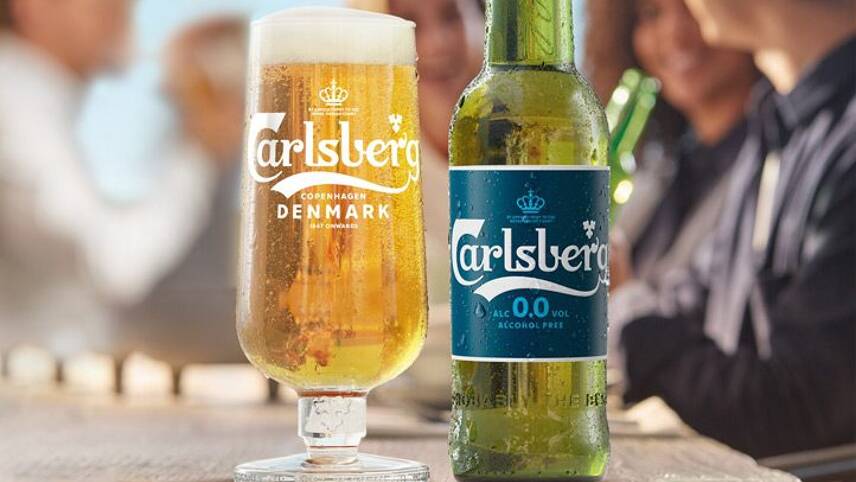Register for free and continue reading
Join our growing army of changemakers and get unlimited access to our premium content

The company recorded a 12% reduction in relative carbon emissions from its breweries in 2019
Carlsberg Group’s Sustainability Report 2020 outlines progress towards its Together Towards Zero strategy, which targets zero water waste and includes science-based targets aligned to the 1.5C aims of the Paris Agreement as key goals.
Through the strategy, Carlsberg is aiming for zero carbon emissions at breweries and a 30% reduction in beer-in-hand emissions by 2030. The carbon pillar of the strategy also includes 2022 targets to eliminate all coal use at breweries, reduce brewery emissions by 50% and beer-in-hand emissions by 15%.
The latest report reveals Carlsberg delivered a 7% decrease in relative carbon emissions across its total value chain – which it refers to as “beer-in-hand footprint” – from 2015 and 2019. The company also recorded a 12% reduction in relative carbon emissions from its breweries in 2020, which means that brewery emissions have been reduced by 39% since 2015.
In 2018, the company retrofitted its Sverige brewery in Falkenberg to run completely off of biogas and renewables, making it the company’s first carbon-neutral brewery. Since that time, Carlsberg has delivered retrofits to create a total of eight carbon-neutral breweries, with three being achieved last year.
Carlsberg used 100% renewable energy to power its 29 breweries in Western Europe for the first time in 2018, with power sourced from a mixture of onsite solar arrays and through renewable energy certificates. Currently, 64% of electricity is sourced from renewables, as the company aims to reach 100% by 2022.
Carlsberg improved water efficiency by 7% in 2020. Last year, the company partnered with Desolenator in India to create 20,000 litres of water a day for a town of 4,000 people using the world’s first solar thermal sustainable water purification technology. Water stewardship efforts in Vietnam also helped create infrastructure that will bring fresh water to around 20,000 people.
Additionally, Carlsberg published its first disclosure based on the recommendations of the Task Force on Climate-related Financial Disclosures (TCFD). The data was filed in the company’s 2020 annual report.
Carlsberg’s chief executive Cees t’ Hart said: “2020 was a challenging year for our business, our customers and our people all around the world. At Carlsberg, we continued our efforts to help communities in this challenging time, while working to reach our ambitious targets to cut carbon and water waste. We will not let COVID-19 throw us off course.
“We’re on track to meet our 2022 targets, and since 2015 we’ve reduced our brewery emissions by 39%, cut our beer-in-hand footprint by 7%, and brought down our water use by 18% for every hectolitre of beer produced.”
Matt Mace


Please login or Register to leave a comment.